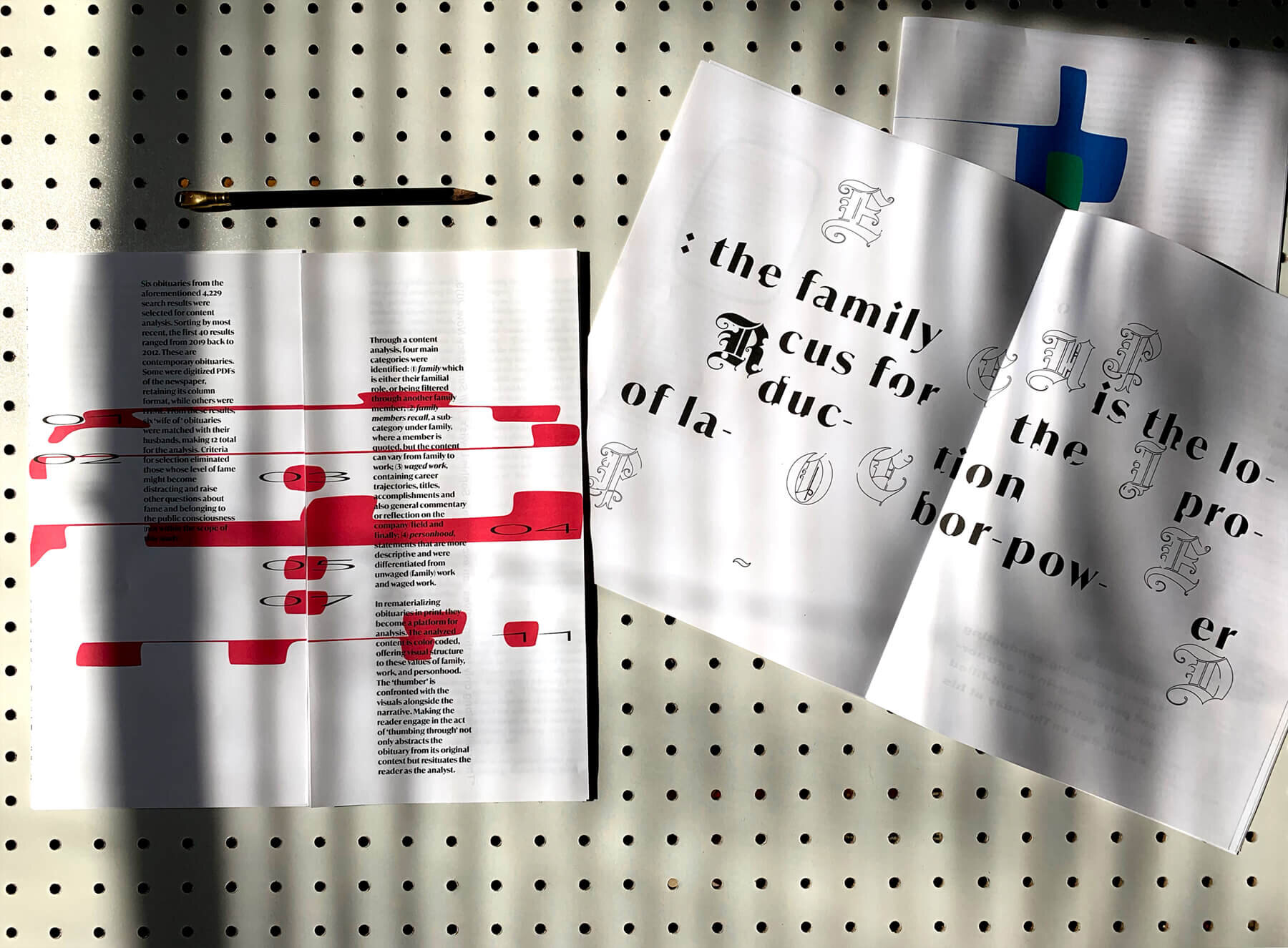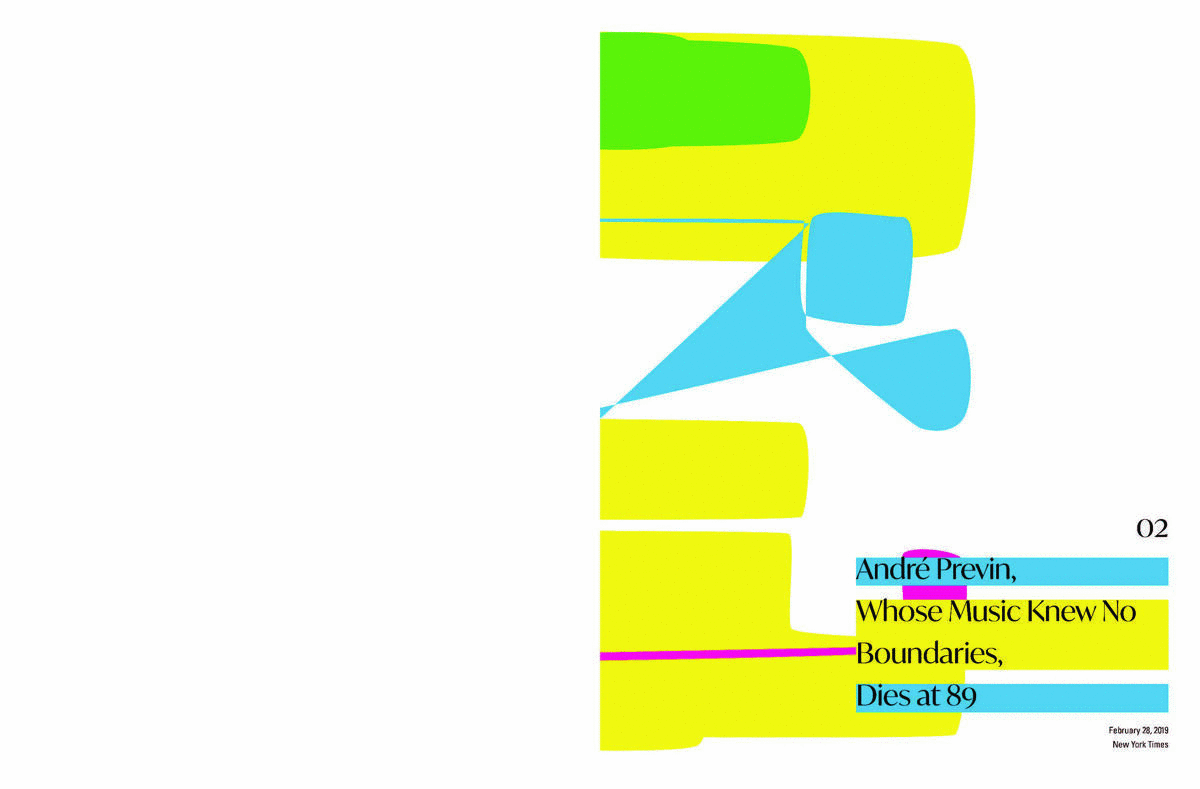Hilary Short

Pre-Occupied is an installation on pegboards and book series of twelve obituaries examining familial roles. The title comes from society’s preoccupation with death and also serves as commentary on the social reproduction that occurs within the family structure. ‘Pre’ alludes to these roles being determined for us before our births and upheld/passed down through the family that teaches us (i.e. heteronormative patriarchy); ‘Occupy’ alludes to the oppressive value system that determines what is waged work and what is unwaged work (i.e. capitalism).
What is valued and what is viewed as essential stems from our economic structure and notions of power—power that perpetuates itself through obituaries. The way we memorialize death is historically linked to the heteropatriarchal family structure under capitalism; phrases like ‘wife of’ and ‘husband of’ denote this legacy. In our pre-occupations with our own mortality we might ask ourselves: what have we contributed to society? and how might we be known in our death? In memoriam, it is not really about having been ‘the wife’ or ‘the husband.’ It is about having been a ‘productive member of society’ within heteropatriarchal capitalism.
The twelve coded obituaries are hung on pegboards as an installation. The pegboard is an organizing system used in both commercial and domestic spaces. It holds tools and orders them in relation to one another—hung on tiny pegs and inserted into equidistant holes. The more the pegboard holds, the more obscured its system becomes. The user only sees the tools and not the ordering system on which they hang, rendering it invisible. Similarly, the obituary, as a tool of heteropatriarchal capitalism, obscures the system on which it hangs. This analysis seeks to make this system visible.
Hilary Short is an American writer and designer. She graduated from Temple University with a BA in Sociology and from the University of Illinois at Chicago with a MDes in Graphic Design. Her work considers the roles and structures in society and imagines other possibilities—highlighting the struggle between personal agency and pre-determinism. Within this feminist framework, she explores our relations to our own bodies, objects and memories all while trying to keep a sense of humor over wondering whether or not we have control over anything. You can find more of Hilary’s work at whatthehilary.com.
Compose your message to Hilary Short:















